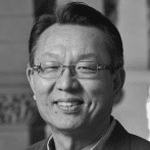
Gi-Wook Shin
Stanford University
Location: San Francisco Bay Area
Member Since: 2018
Shin is the author/editor of more than twenty books and numerous articles. His recent books include Strategic, Policy and Social Innovation for a Post-Industrial Korea: Beyond the Miracle (2018); Superficial Korea (2017); Divergent Memories: Opinion Leaders and the Asia-Pacific War (2016); Global Talent: Skilled Labor as Social Capital in Korea (2015); Criminality, Collaboration, and Reconciliation: Europe and Asia Confronts the Memory of World War II (2014); New Challenges for Maturing Democracies in Korea and Taiwan (2014); Asia’s Middle Powers? (2013); Troubled Transition: North Korea’s Politics, Economy, and External Relations (2013); History Textbooks and the Wars in Asia: Divided Memories (2011); South Korean Social Movements: From Democracy to Civil Society (2011); One Alliance, Two Lenses: U.S.-Korea Relations in a New Era (2010); Cross Currents: Regionalism and Nationalism in Northeast Asia (2007); Rethinking Historical Injustice and Reconciliation in Northeast Asia (2006); and Ethnic Nationalism in Korea: Genealogy, Politics, and Legacy (2006). Due to the wide popularity of his publications, many of them have been translated and distributed to Korean audiences. His articles have appeared in academic journals including American Journal of Sociology, Comparative Studies in Society and History, Political Science Quarterly, International Sociology, Nations and Nationalism, Pacific Affairs, Asian Survey, and Journal of Democracy.
Shin is now working on a new research initiative seeking to examine potential benefits of talent flows in the Asia-Pacific region, where countries, cities, and corporations have competed with one another to enhance their stock of “brain power” by drawing on the skills of both their own citizens and those of foreigners. Taking an interdisciplinary approach, this project examines flows of talent across national boundaries and assesses the efficacy of transnational human and social capital in environments such as cities, universities, and corporations in the Asia-Pacific region. In this way, the project aims to provide insights for policymakers as they devise policies to attract brainpower transnationally.
Shin is not only the recipient of numerous grants and fellowships, but also continues to actively raise funds for Korean/Asian studies at Stanford. He gives frequent lectures and seminars on topics ranging from Korean nationalism and politics to Korea’s foreign relations and historical reconciliation in Northeast Asia. He serves on councils and advisory boards in the United States and South Korea and promotes policy dialogue between the two allies.
Before coming to Stanford, Shin taught at the University of Iowa and the University of California, Los Angeles. After receiving his BA from Yonsei University in Korea, he was awarded his MA and PhD from the University of Washington.
